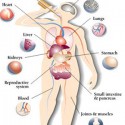Parents and pot
The recent flurry of findings on marijuana’s health risks may have baby boomers wondering, “How can that be?” Chances of getting into legal trouble aside, is it possible their kids might be in danger of heart or mental health issues when they themselves turned out just fine? Researchers have learned plenty about pot in recent years, though there’s much that is still not known and plenty that’s hotly debated.
Parents may just want to listen up: The most recent National Survey on Drug Use and Health found that among marijuana users over age 12, almost 35 percent used marijuana 20 or more days in the past month.
One thing has changed: Pot packs a bigger wallop now than it did in the ’70s. Today’s leaves are up to five times as potent. So, says Nora Volkow, director of the National Institute on Drug Abuse, still-developing brains, which are “more plastic, more sensitive to being modified,” are exposed to higher doses of THC, the psychoactive ingredient in cannabis. Teens’ tendency toward experimentation is in part because of the fact that the frontal cortex, which helps drive judgment, isn’t fully developed until the early 20s. And peer pressure to smoke doesn’t help. The greater a person’s exposure to THC, the greater the hit to brain metabolism, a reflection of brain function.
Volkow used brain imaging to detect marijuana-related changes in activity in adults. She saw declines more severe in daily users than in people who smoked marijuana once or twice a month and more pronounced in occasional users than in nonusers. In rats, she adds, “there is clearly data showing that exposure during adolescence has long-lasting effects on the function of the brain when animals (become) adults.” The extent to which such changes can be reversed is not known.
A big unknown, but an exciting new area of research, says Volkow, is how the interplay between genes and a person’s environment – like doing drugs during childhood – affects a person’s risk of abusing drugs or developing a psychiatric disorder. A small, preliminary study that she finds “really fascinating” found that people with a certain gene variant who did marijuana as adolescents were several times more likely to develop schizophrenia.
Quite a bit of data shows that in many instances, kids who start to smoke pot are at greater risk of developing depression or anxiety as they grow up, says Volkow. But the problem with this type of epidemiological data, she adds, is that it’s possible those people started smoking to self-medicate a not-yet-recognized mental health issue.
Others caution that preliminary findings cannot be generalized to the public at large. “I don’t think there is any very compelling evidence that people develop more psychiatric problems, anxiety, depression, or even psychosis as a result of marijuana use,” says Igor Grant, director of the Center for Medicinal Cannabis Research at the University of California. He notes that if there was such a causal effect, the surge in marijuana’s popularity in the ’60s and ’70s should have brought an uptick in cases of schizophrenia, but that’s not what happened.
In the absence of hard answers, Volkow warns those with a family history of schizophrenia, depression, or anxiety against dabbling in marijuana – particularly in adolescence – because of the possibility of underlying vulnerability. “You don’t know what your genes are,” she says.
The lungs can suffer, too, from both pesticides used in the growing process and carcinogens, which some research suggests may be more concentrated in marijuana than in cigarettes. Grant points out that “tobacco smoke is used in much higher doses – you couldn’t smoke 20 marijuana cigarettes a day and stay vertical.” While smoking pot isn’t perfectly safe, he maintains, it isn’t as toxic as many other drugs. Still, some research suggests that regular use is associated with chronic cough, bronchitis, and emphysema, and a greater risk of cancer of the head and neck.
Heart risks may increase with pot, too. A recent study showed higher levels of a protein that raises triglyceride levels, which are linked to cardiovascular disease, in the blood of chronic smokers. Pot also increases blood pressure and heart rate and causes a reduction in the blood’s ability to carry oxygen. One study found that risk of heart attack increased fourfold in the hour after toking up.
And that seemingly benign plant of yesteryear can, in fact, be addictive: Fifteen percent of people entering a drug-abuse program reported marijuana as their primary drug of abuse in a 2002 survey. To be sure, people who abuse drugs of any kind quite often have some other psychiatric problem, such as depression or anxiety. There is some evidence, Volkow says, that people with mental disorders are more likely to become dependent on marijuana because the drug at first provides relief by boosting mood, thus conditioning the person to seek it repeatedly. Animal research also suggests that a chronically stressful environment may increase vulnerability to dependence, which could be relevant in kids exposed to chronic social stressors, she says.
__________
source: Chicago Daily Herald, http://www.dailyherald.com

